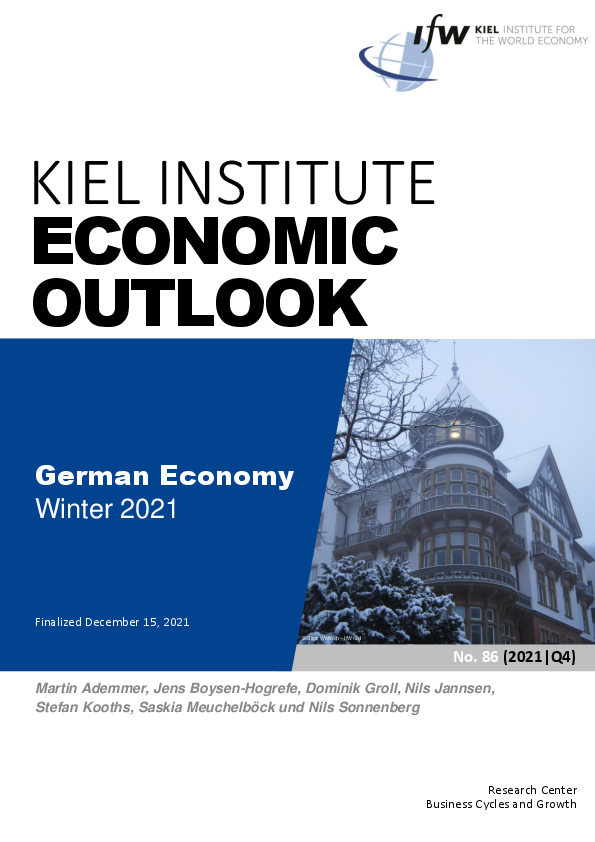Economic Outlook
German Economy Winter 2021: Recovery temporarily on hold
Authors
Publication Date
Key Words
Related Topics
Germany
Business Cycle Germany
Fiscal Policy & National Budgets
Labor Market
The recovery of the German economy is interrupted once again. In the winter, the new Covid-19 wave will particularly hit activity in contact-intensive service sectors as in previous waves. As a result, there will be a setback in private consumer spending and probably also small declines in GDP. To the extent that the burdens of the pandemic ease in the spring, a strong recovery will set in, similar to the pattern observed this year. Economic momentum will likely be particularly high as the supply bottlenecks, which are massively dampening industrial production in this year, are expected to ease. Overall, the renewed slowdown in the recovery process caused by the pandemic will probably be larger than we had expected in our autumn economic outlook. However, the setback will be not as severe as last winter. In 2022, GDP will probably increase by 4 percent and thus less strongly than we had expected three months ago (5.1 percent). For 2023, we revise GDP growth upwards to 3.3 percent (autumn outlook: 2.3 percent). This year, GDP will increase by 2.6 percent. Inflation will remain high for the time being, also because supply bottlenecks continue to increase manufacturing costs and tighten the supply of consumer goods. At the same time, private households have accumulated additional savings of around 200 billion euros since the beginning of the pandemic and therefore have a rather high willingness to pay. Consumer price inflation will probably be around 3 percent both this and next year, before easing again in 2023. The public budget deficit will fall noticeably from 3.8 percent in relation to GDP in 2021 to 1.8 percent in 2022 due to the reduced burden of the pandemic. However, the budgets are still expected to close with a deficit of 1.4 percent in 2023.











